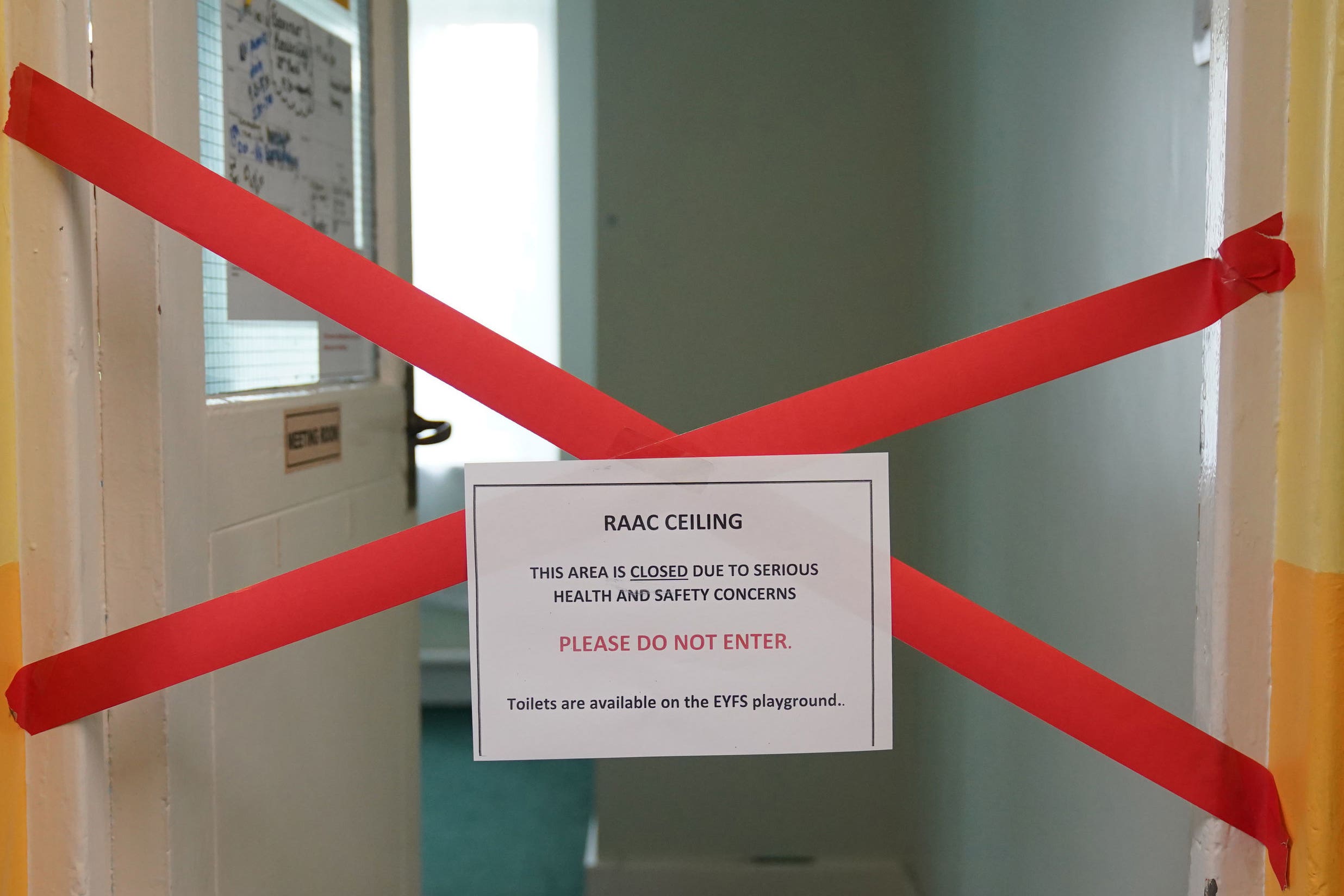Council to recommend 500 homes with collapse-risk concrete to be knocked down
A report by Aberdeen City Council recommends the homes should be rebuilt in a project costing a total of £150 million.

Your support helps us to tell the story
As your White House correspondent, I ask the tough questions and seek the answers that matter.
Your support enables me to be in the room, pressing for transparency and accountability. Without your contributions, we wouldn't have the resources to challenge those in power.
Your donation makes it possible for us to keep doing this important work, keeping you informed every step of the way to the November election

Andrew Feinberg
White House Correspondent
The demolition and rebuilding of more than 500 homes built with collapse-risk concrete in Aberdeen has been recommended.
Panels of the lightweight, building material reinforced autoclaved aerated concrete (Raac) were discovered in the roofs of 504 homes in the Balnagask area, in 372 different buildings, last year.
Residents were moved out in February from the homes, which were built about 60 years ago, and include 366 council houses and flats, while another 138 properties containing Raac are privately owned.
Raac is highly porous – with steel reinforcements less well-bonded than in traditional concrete – making roofs liable to collapse suddenly.
A report, which will go before Aberdeen City councillors on August 21, has recommended that the homes are demolished at a cost of £20-25 million, and rebuilt, with the project expected to cost more than £150 million in total.
The process of rehoming people has begun – with a target to finish before the end of the year.
As of Tuesday, 151 leases have been signed, including 144 for homes with Aberdeen City Council and seven with social landlords.
Concerns about Raac emerged last year, prompting governments and councils around the UK to assess buildings for its presence.
There is no national scheme of support available for owners in these circumstances
The Aberdeen City Council report said: “Officers recognise the wider impact of moving home, the disruption to support networks, sense of community, and links to existing education and health services. A person/family centred approach, is being adopted to support the most appropriate outcome.
“However, as difficult as this is, the condition of the Raac roof panels is categorised as high-risk. This categorisation has been confirmed following an extensive intrusive investigation and inspection survey programme covering circa 130 of the affected council-owned properties.”
It added: “Officers would advise members that the council tenants need to move as their safety is paramount.
“Members are also asked to note that our independent structural engineers have advised that given the number of properties inspected, it is envisaged that the same level of risk is applicable to the uninspected privately owned properties.”
Many homeowners may find themselves in negative equity, it was warned.
Options looked at by the council included adding timber runners to extend the bearing length at the support walls, which was deemed to be unviable.
Other proposals included installing a support timber frame under existing Raac roof panels; removing the panels and replacing the roof – also discounted for council homes – and removing the panels, and replacing the roof with new energy efficient materials.
Demolition and rebuilding was described as “deliverable”.
The option of “demolition and consideration of future housebuilding” will be considered by the council on August 21.
Opposition politicians have called for more support for councils dealing with the implications of Raac.
Scottish Conservative North East MSP Liam Kerr, who has met residents affected, said: “This will require astronomical sums of money at a time when councils are having their budgets slashed.
“It’s a necessity that the Scottish Government delivers essential funding needed to cope with Aberdeen’s depleted housing stock.
“Since Raac was discovered in Balnagask, next to no support has been given to tenants and homeowners who have been left in the dark, worried about their future. The onus is now on the council to work with the Scottish Government to ensure this process runs smoothly.”
Scottish Liberal Democrat leader Alex Cole-Hamilton said: “This report will be troubling for those in council houses across the country where this dangerous concrete has been detected.
“If the risks are serious enough to merit demolition in Aberdeen, what about other areas like Dundee and Edinburgh which have also found the material in social housing? What about fire stations, NHS buildings and schools?
“It is now over a year since I raised this issue with the then first minister and the government’s response has been to make it someone else’s problem. Cash-strapped local authorities cannot be expected to bear the costs of removals and rebuilding alone.
“It is time for the SNP to establish a fund that councils, health boards and public bodies can tap into to remove this dangerous concrete.”
Housing minister Paul McLennan met again with council leaders on Monday, ahead of the meeting next week.
A Scottish Government spokesperson said: “We recognise this is a worrying time for people who have concerns about Raac.
“The Scottish Government has held constructive discussions with Aberdeen City Council throughout their options appraisal process for homes impacted by poor condition Raac and have supported the exploration of options for the council to consider.
“The final decision on the preferred option is for the council. We will continue to work together on their preferred option to ensure that the affected households are supported appropriately.”
Subscribe to Independent Premium to bookmark this article
Want to bookmark your favourite articles and stories to read or reference later? Start your Independent Premium subscription today.